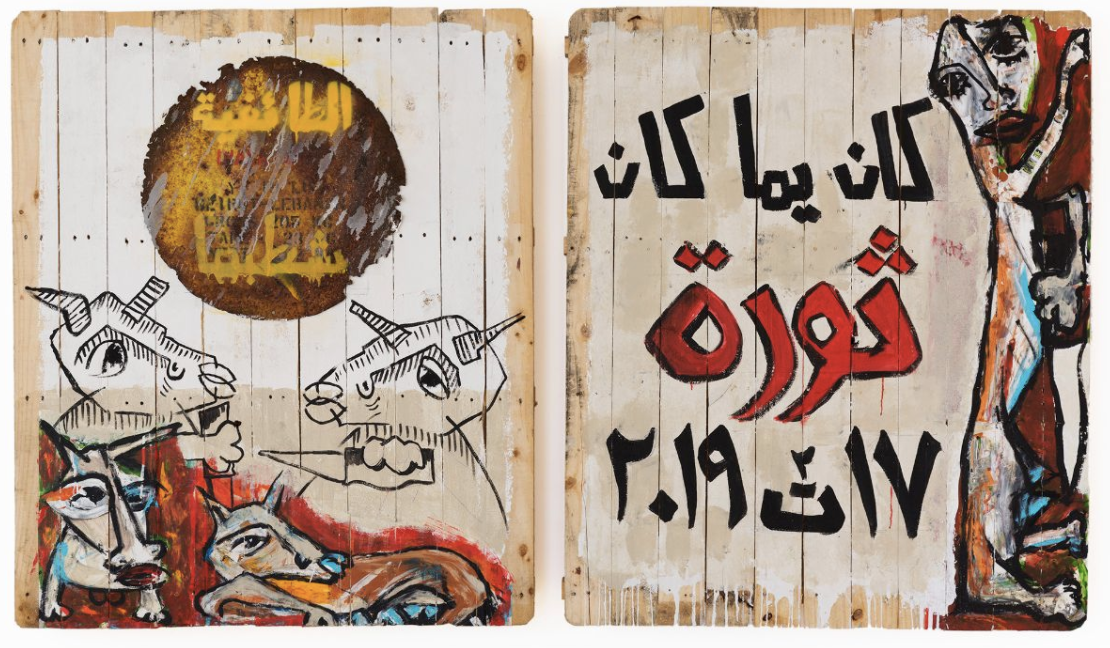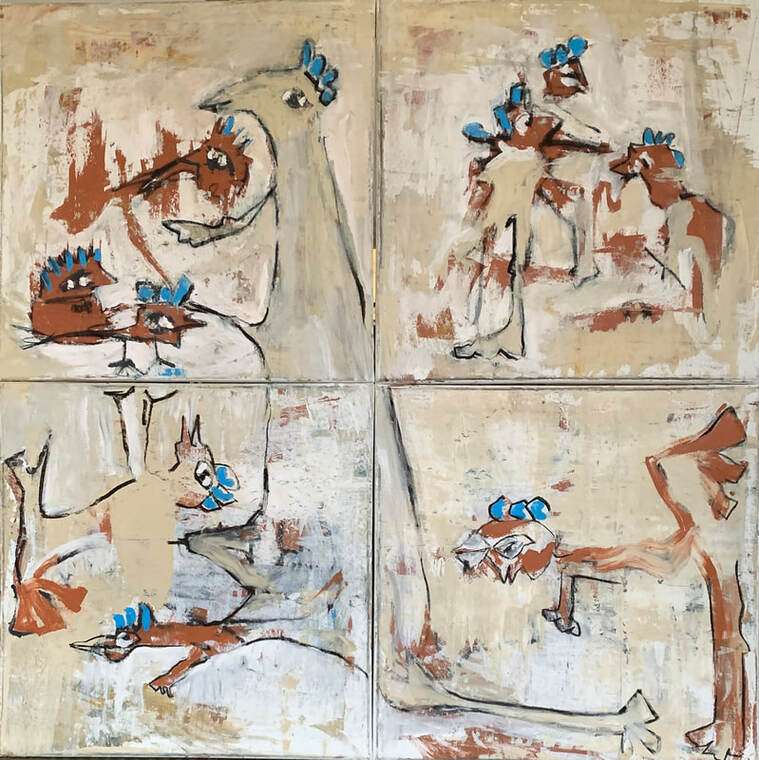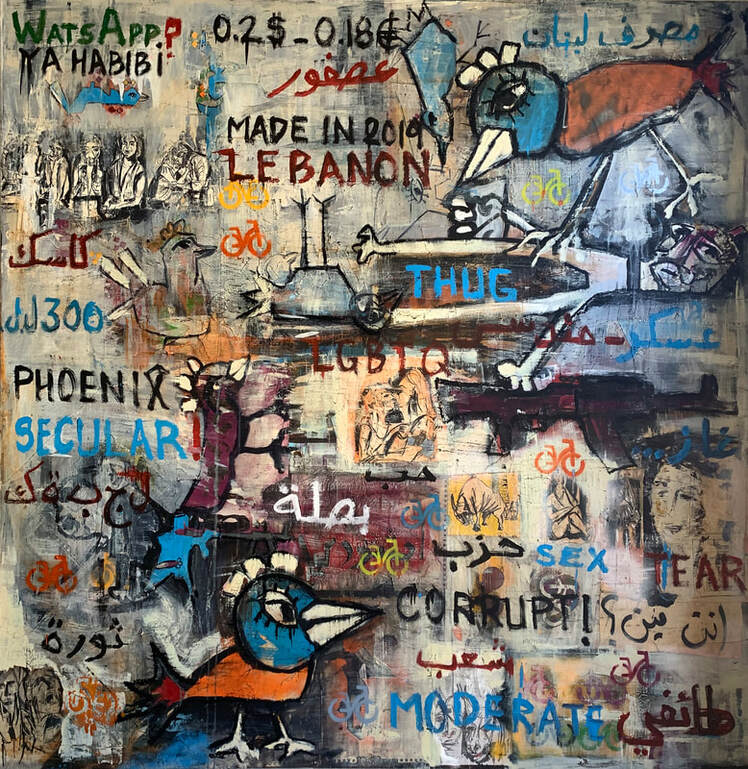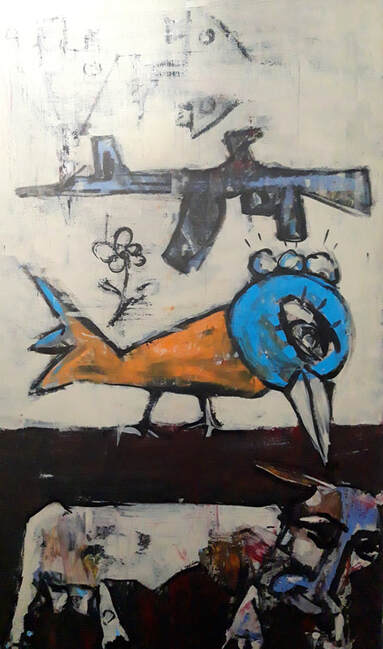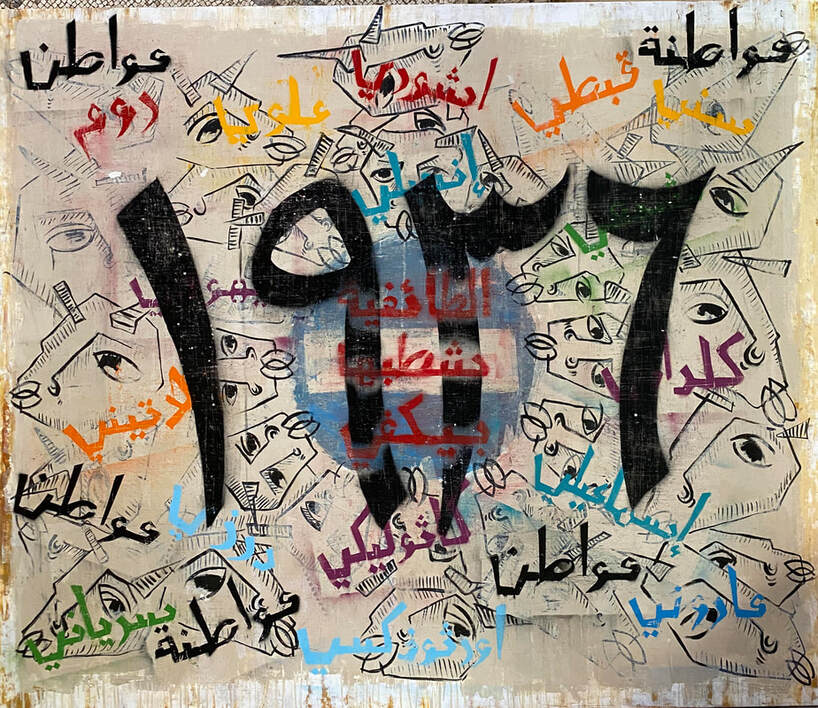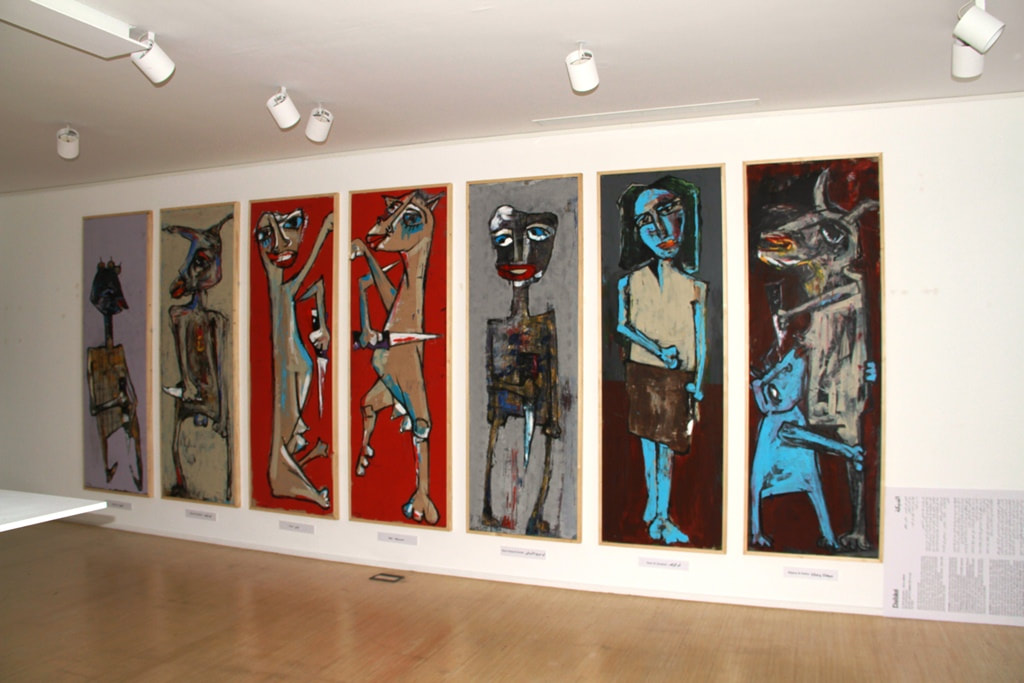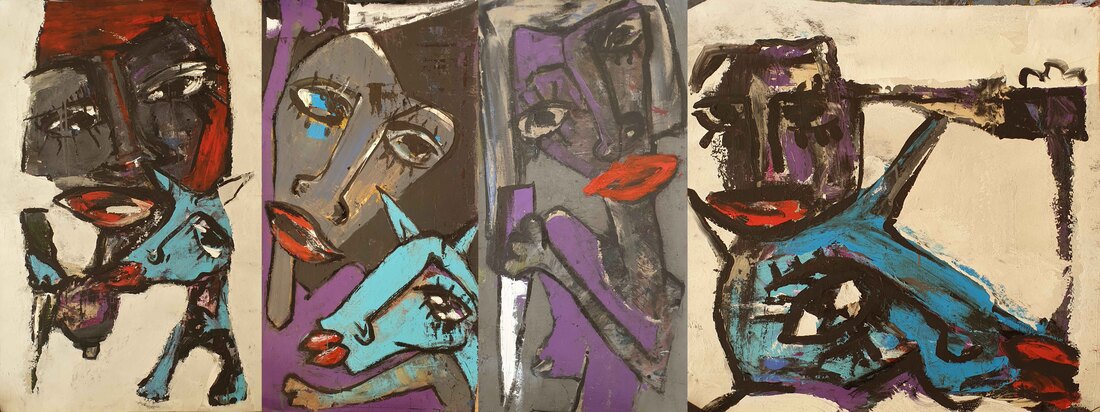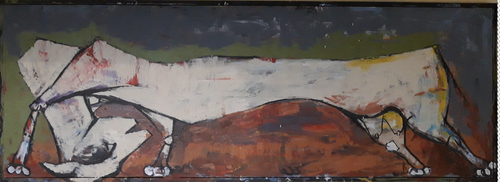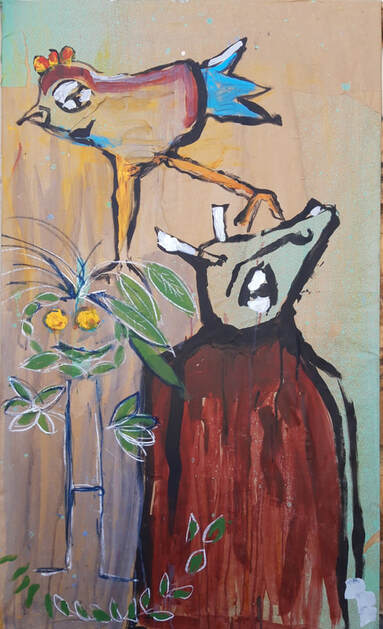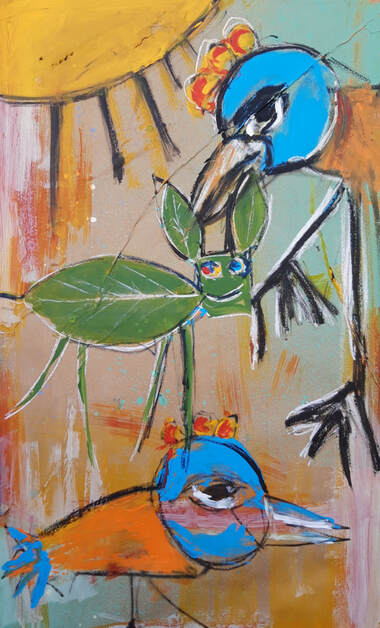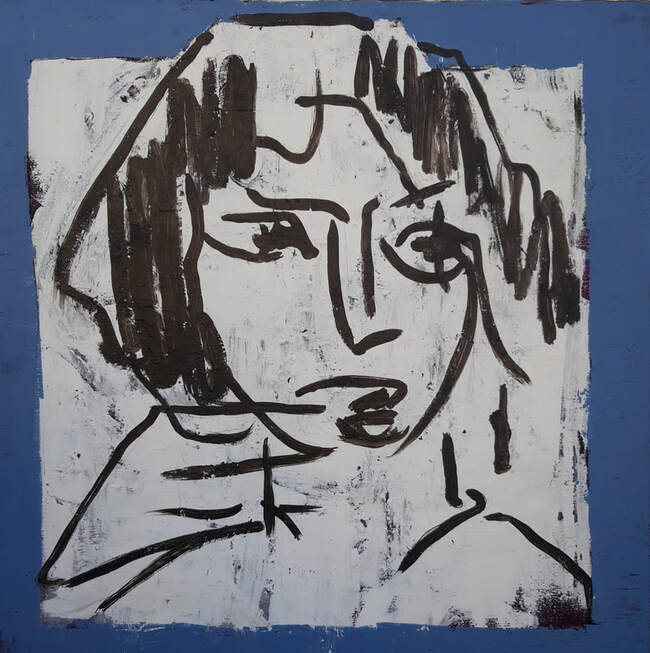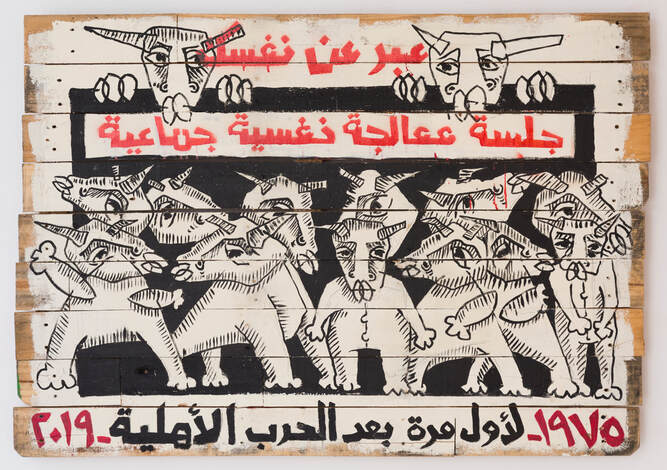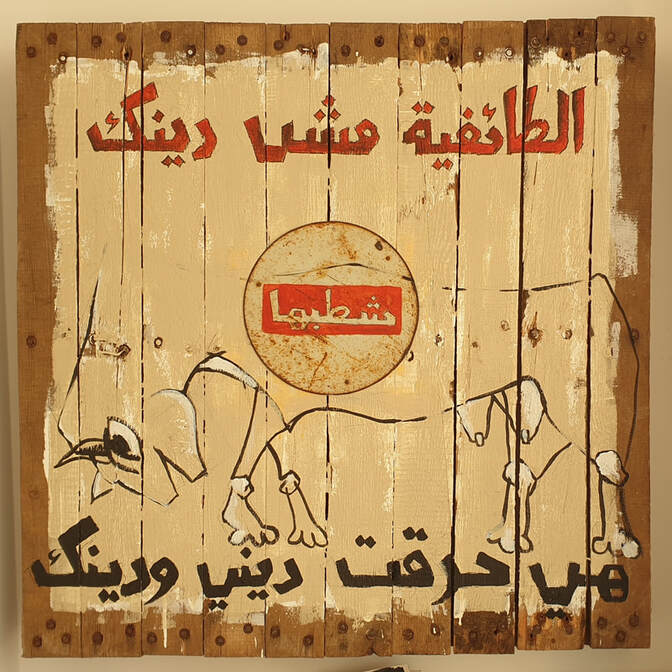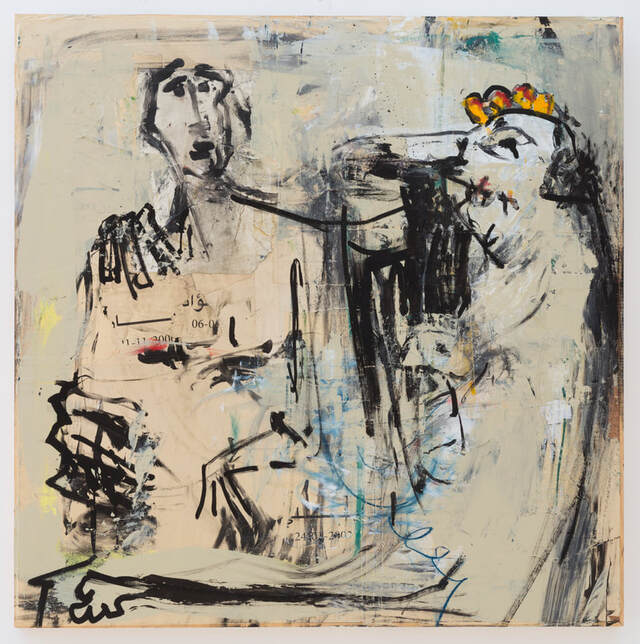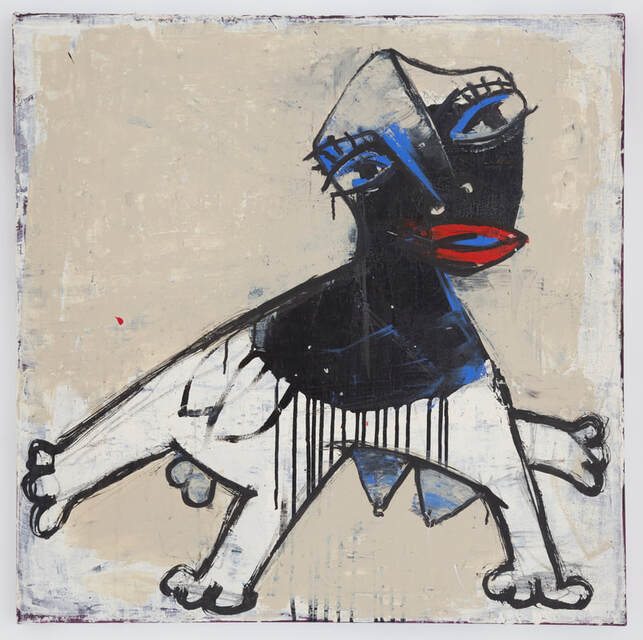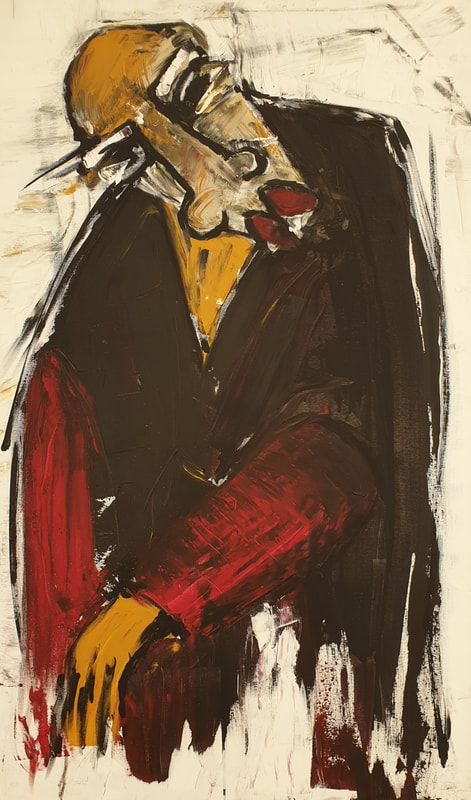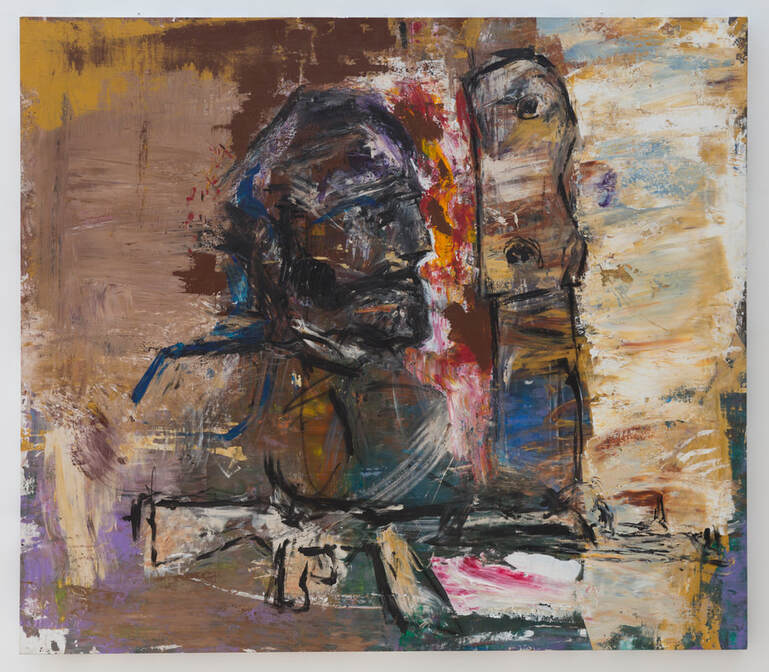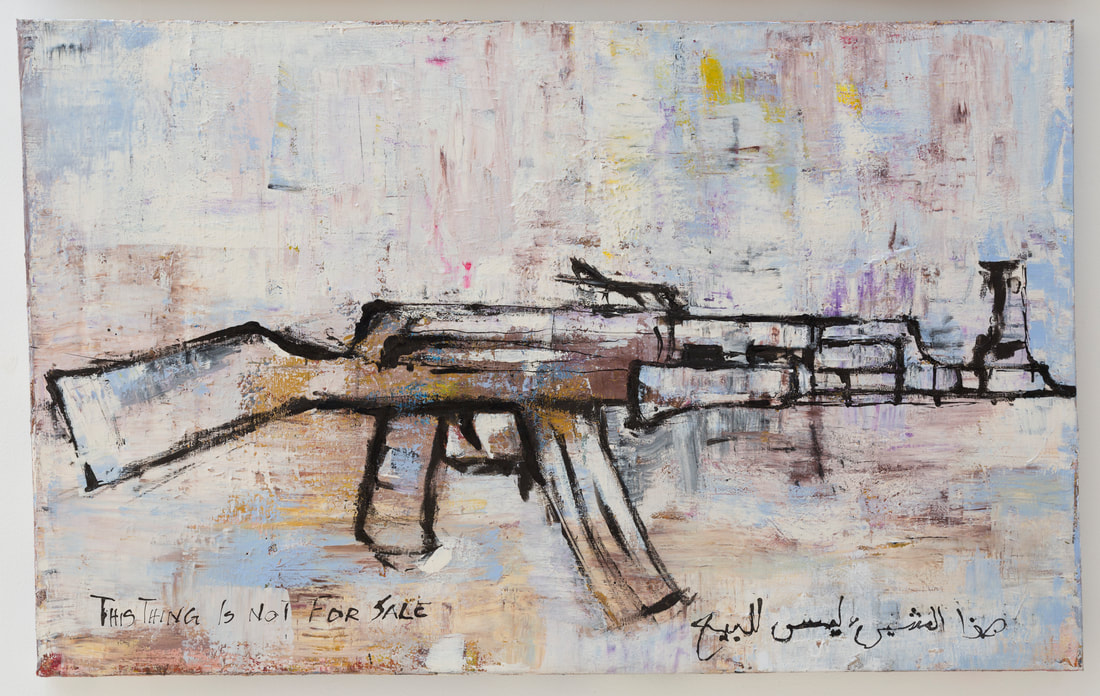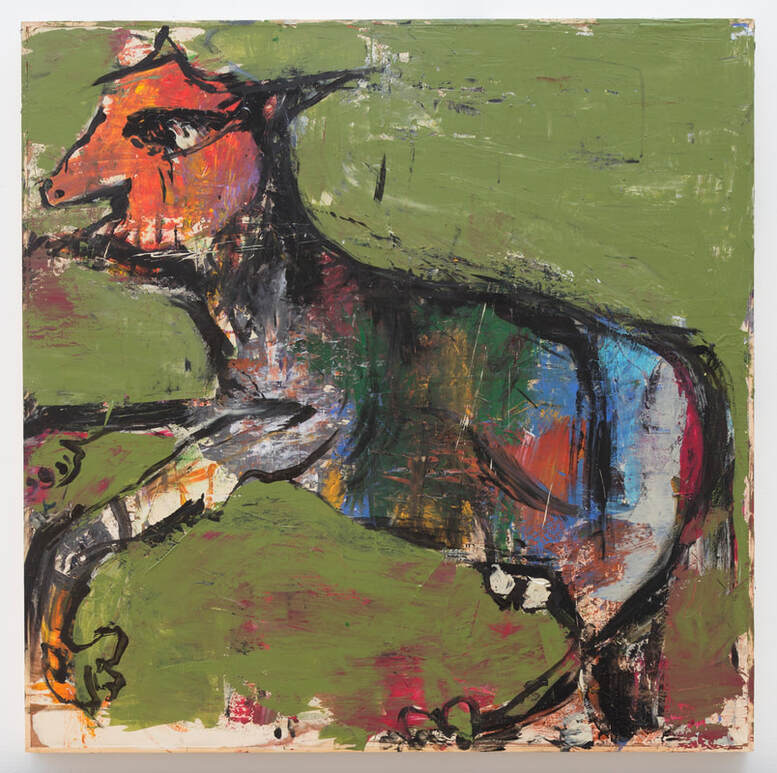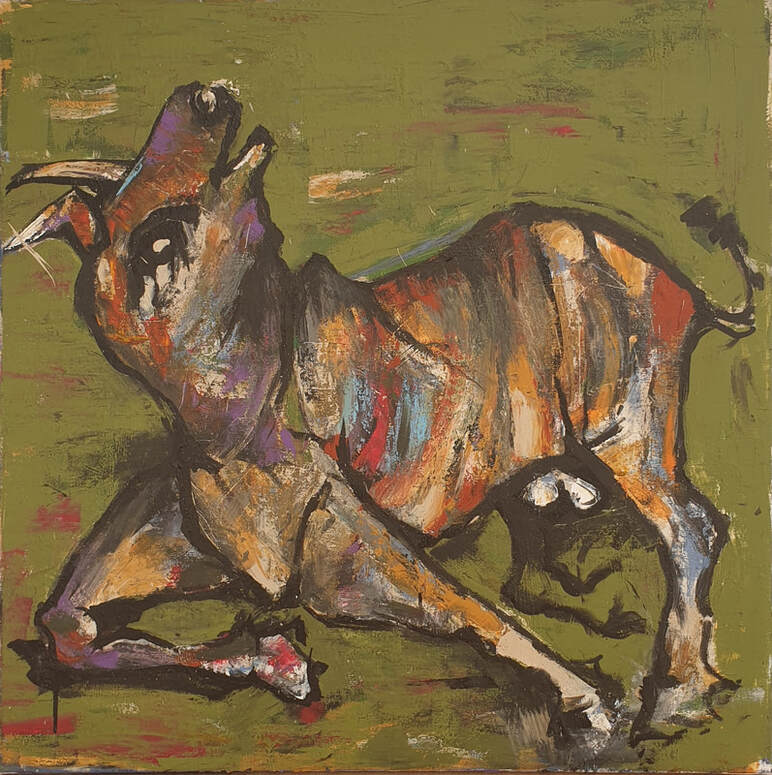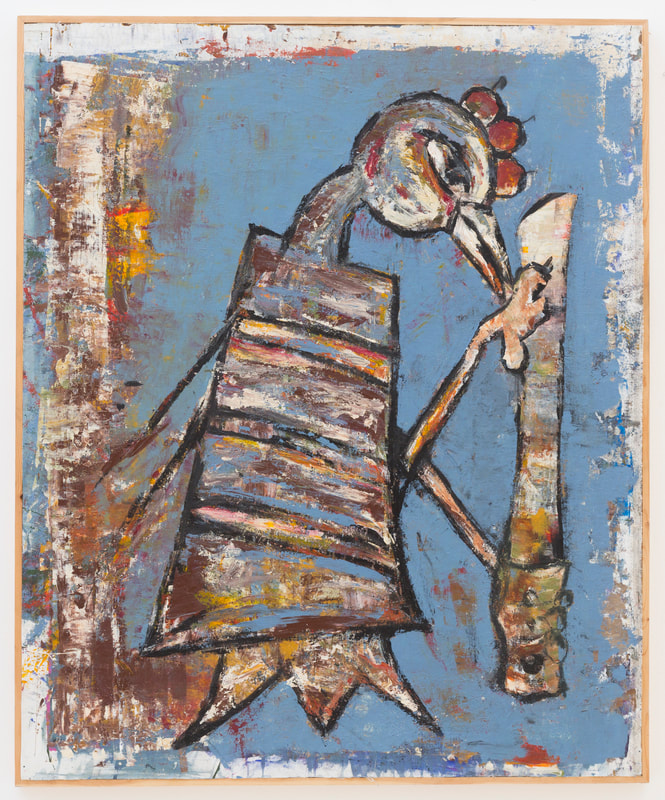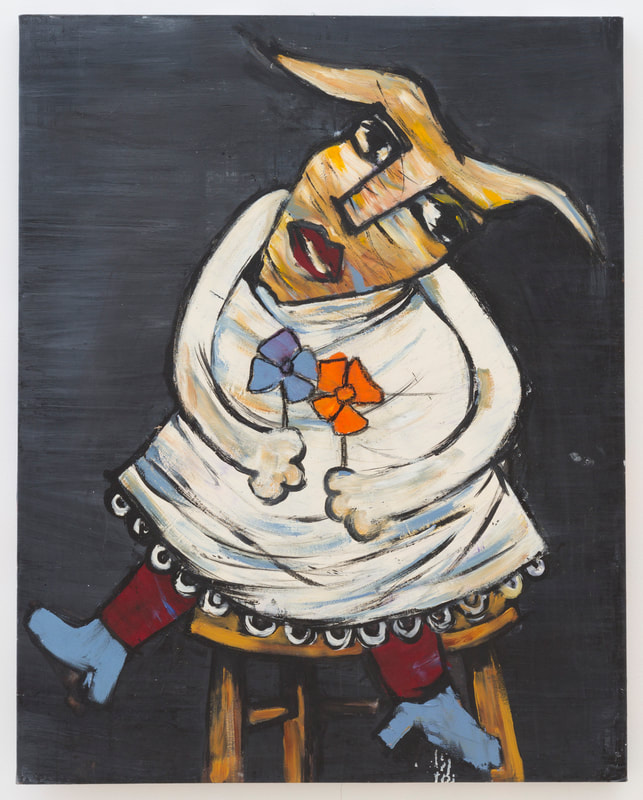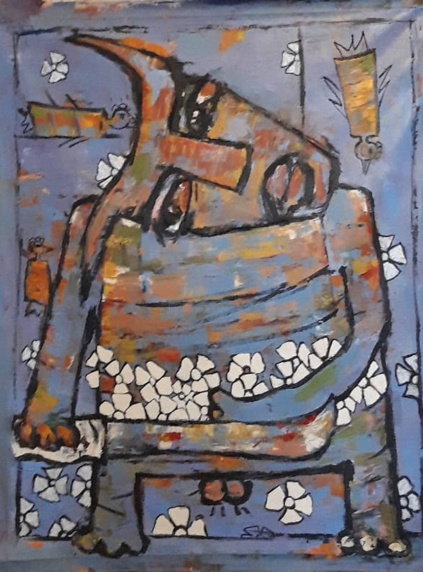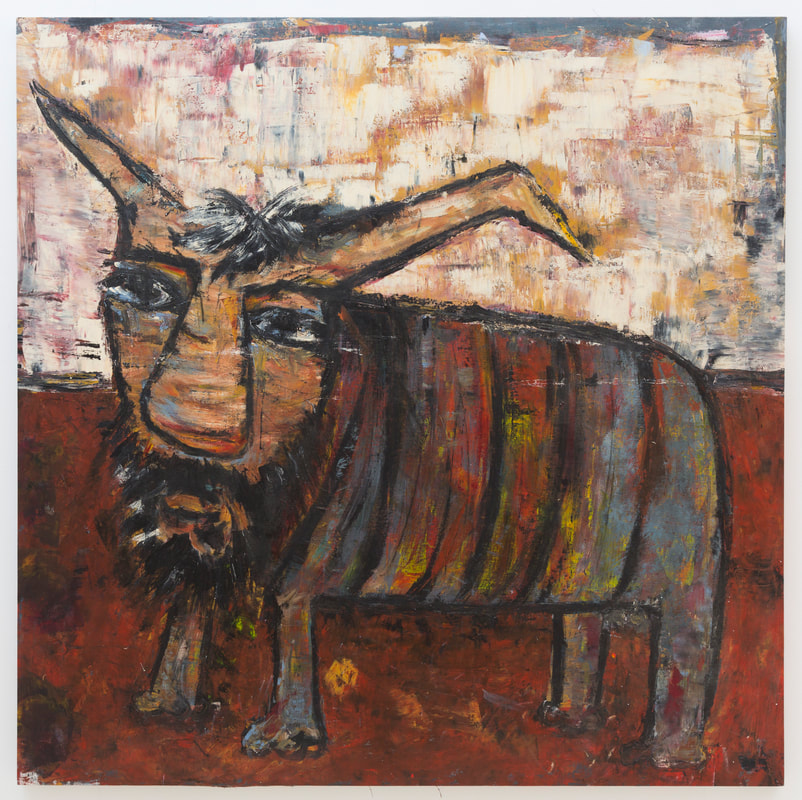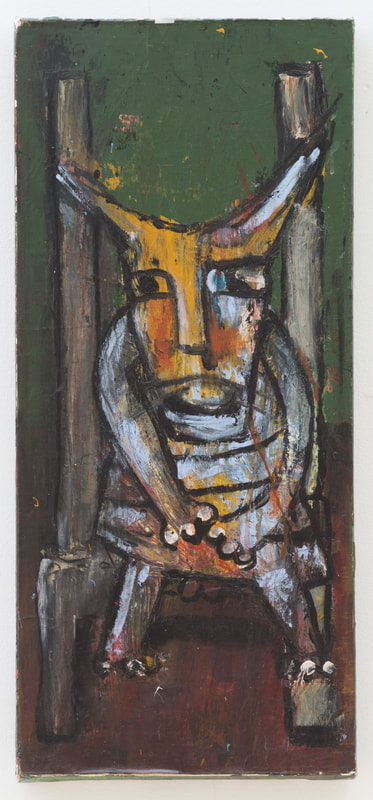Once Upon a Time… a Revolution
كــــــــان يــمــا كـــــــان ثــــــــــــــــــــــورة
كــــــــان يــمــا كـــــــان ثــــــــــــــــــــــورة
|
- I gave them the wall. They can break their heels and their heads against it. You mock them. - I give them space for collective therapy. The bull and the antelope in dialogue Day 21 of Revolution |
أعطيتهم الجدار. يمكنهم أن يكسروا أعقاب أرجلهم ورؤوسهم به. - أنت تسخر منهم. - أعطيتهم مساحة لعلاج نفسي جماعي. الثور والغزالة في حوار اليوم 21 من الثورة |
|
Half man, half bull, Mawad’s Minotaur is implicated in the social dynamic which leads to universal revolt, as a representation of the collective self. Mawad’s art is a symptom of his activism, a mere manifestation of his unwavering bid for the universal values he has upheld for over two decades.
His Bull rises in Africa and resigns in Beirut. The exhibition treads the metamorphosis of the bull, and in effect becomes a eulogy for many failed revolutions, yet a celebration of the process and the will to revolt. As Lebanon’s revolution comes to its demise, the bull recedes, the human surfaces, slaughtering the calf as a revolution must slaughter the very social norms it is seated in - a crime seen in the bird’s eye view! And the antelope emerges. Whilst the Thawr –الثور is sacred for some, and Revolt – Intifada is revolution for many, the Thawrat – الثورة is the primordial self of one and of all. |
نصف رجل ونصف ثور، ينخرط "مينوتور" معوض في ديناميكية اجتماعية تهدف إلى ثورة كونية تعبّر عن الذات الجماعية. يشكّل فن معوض عارضًا من أعراض حركته كناشط اجتماعي، فيجسّد محاولاته العنيدة في ترسيخ قيم إنسانية عالمية دافع عنها لأكثر من عقدين
يستفيق ثوره في أفريقيا ويستقيل في بيروت. يُظهر المعرض مسار تحول الثور، ويصبح في الواقع تأبينًا لثورات فاشلة كثيرة، إلا أنه يبقى احتفالًا بإرادة الانتفاض. ومع اقتراب ثورة لبنان من الاندثار، يتوارى الثور ليتجلّى البشري، فيذبح العجل كما تذبح كل ثورة المعايير الاجتماعية البالية التي لطالما تخبطت بها الشعوب. إنها جريمة يُشاهد العالم أحداثها العامة من فوق، على مسافة بعيدة، فتظهر الغزالة لما كان الثور مقدسًا لدى البعض والانتفاضة ثورة لدى لكثيرين، تبدأ الثورة على الذات قبل أن تطال الآخرين. |
Our Caved Phoenix. Soon it will be the revolution of the hungry, the primal struggle against the decaying political elite.
The “19th” Wall of Sentiments - The Confined Revolution
2019, October 19 and for many months ... we staged a revolution. We banged our pots and pans. We exposed the last vestiges of our private space. We marched. We mated. We hoped, we cried, we cursed, we loved, we hated, we took to the street, made love in its corners, we cheered, we had a coffee and a sandwich. We texted, we posted, we declared ... we went back home ... we waited for August 4th, Beirut blew up and we stayed home.
The revolution created an unprecedented space for co-existence, yet sectarianism resurfaced once the ecstasy subsided.
2019 and Beyond, Covid-19 spread intensively and we had to “Stay Home” and “Stay Safe”. It was one of many confinements to come.
Within the Space of my painting workshop, the walls seemed suddenly too small. While I watched on TV Tripoli being set on fire, the streets of the revolution and their walls and inherent emotions came rushing back to my mind and senses.
My confinement became a mirror image of their revolution. As the walls of my workshop closed in on me, their revolution refracted on my canvas. From my Space, I share with you a retrospective of my Emotions on the October Revolution of Lebanon Amidst Confinement.
1936 Acrylic on Canvas - 200x170cm.
84 YEARS AND WE ARE STILL STRUGGLING
In Lebanon, Decision 60 of 1936 foresees freedom of conscience, independence and equality of all communities, and respect of personal status. The law recognizes the political and administrative powers of the different confessional representatives, and stipulates that individuals are bound by the personal status laws of their sects. However, Decree No. 60 also states that if people do not belong to a particular sect, then they are subject to civil law, which—as it currently stands—does not exist for personal status issues in Lebanon.
84 YEARS AND WE ARE STILL STRUGGLING
In Lebanon, Decision 60 of 1936 foresees freedom of conscience, independence and equality of all communities, and respect of personal status. The law recognizes the political and administrative powers of the different confessional representatives, and stipulates that individuals are bound by the personal status laws of their sects. However, Decree No. 60 also states that if people do not belong to a particular sect, then they are subject to civil law, which—as it currently stands—does not exist for personal status issues in Lebanon.
The Phoenix Visiting Beirut on August 4, 2020. The Blast.

When the Antelope stretches, the revolution is born.
The Anti-Antelope - A revolution in crisis.
